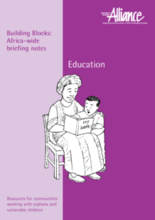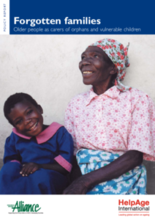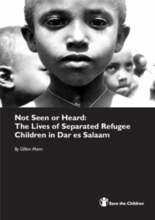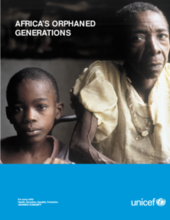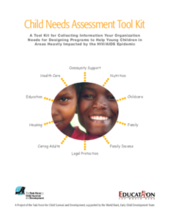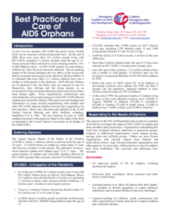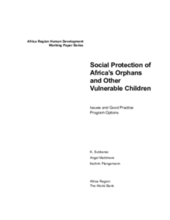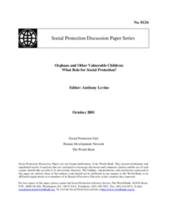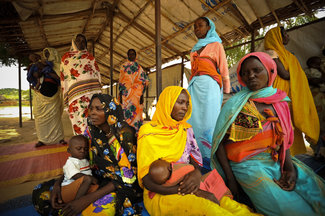

Displaying 91 - 100 of 102
Outlines the impact of HIV/AIDS on children’s education and suggests strategies for meeting children’s educational needs. Includes a list of follow-up resources.
Documents ways in which youth are mobilized to support political and military agendas, and how the construct of youth has been employed for political change.
A brief policy report which highlights issues faced by older caregivers of orphans and vulnerable children in Africa. Outlines NGO responses, challenges and recommendations for programmatic support of older caregivers. Includes statistical data on ageing, HIV/AIDS and kinship care in Africa.
An exploration of the factors surrounding children living on the streets in Africa, including comparisons to street children in Latin America.
A study on the lives of separated refugee children in Dar es Salaam. The study highlights their experiences of abuse and discrimination, and their negative perception of refugee camps.
Current statistics and projections of HIV prevalence and impact on children and families in Sub-Saharan Africa. Outlines a strategy for action which includes collaborative efforts on the part of governments and child-focused agencies to strengthen families, build community capacity and increase awareness.
Comprehensive tool for undertaking household surveys in order to assess the needs of caregivers and young children in communities affected by HIV/AIDS. The pack includes detailed guidance on conducting the survey and analyzing the data.
Brief overview of successes, challenges, threats and programmatic best practices in addressing the needs of children affected by AIDS.
Overviews the causes and consequences of the orphan crisis in Africa and analyzes current social protection responses. Suggests good practices in social protection of orphans and vulnerable children.
A report recording the proceedings of a conference co-sponsored by the World Bank and World Vision. The two-day conference sought to promote awareness of OVC issues around the world, to provide practitioners with a forum to share best practices and other insights, and to probe the role of social protection in implementing a balanced response. Participants included but were not limited to: community and donor organizations, NGOs.

